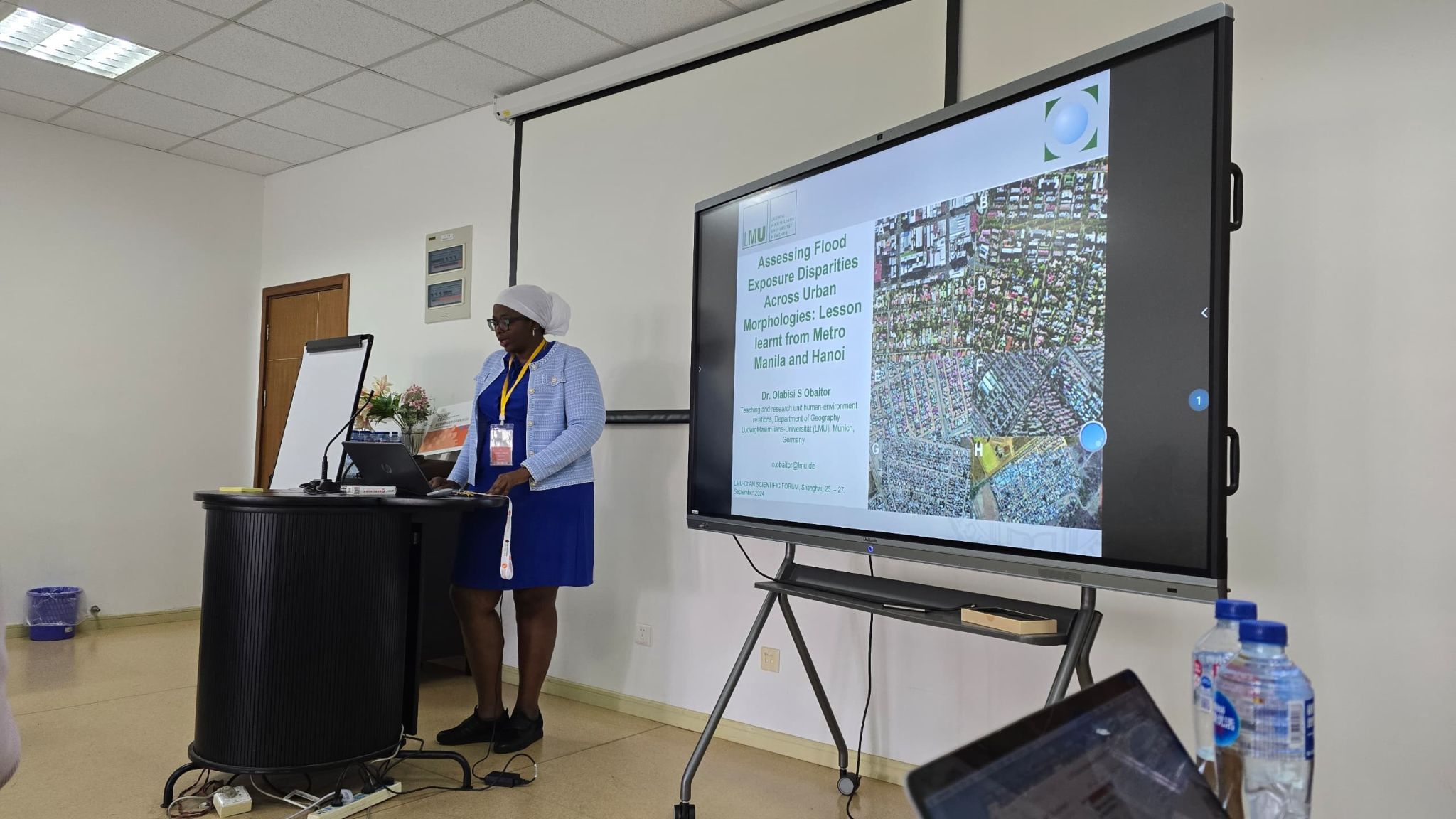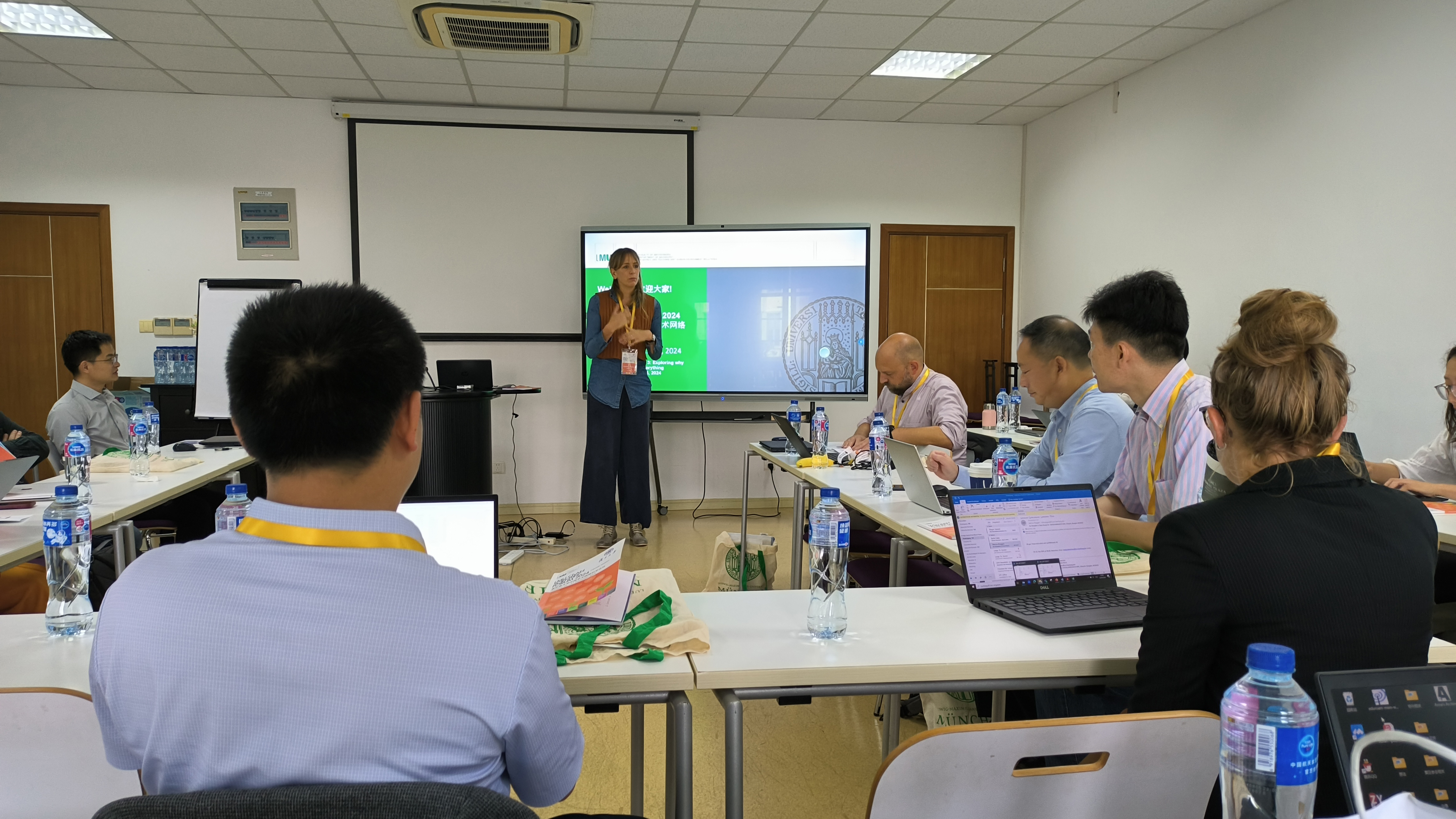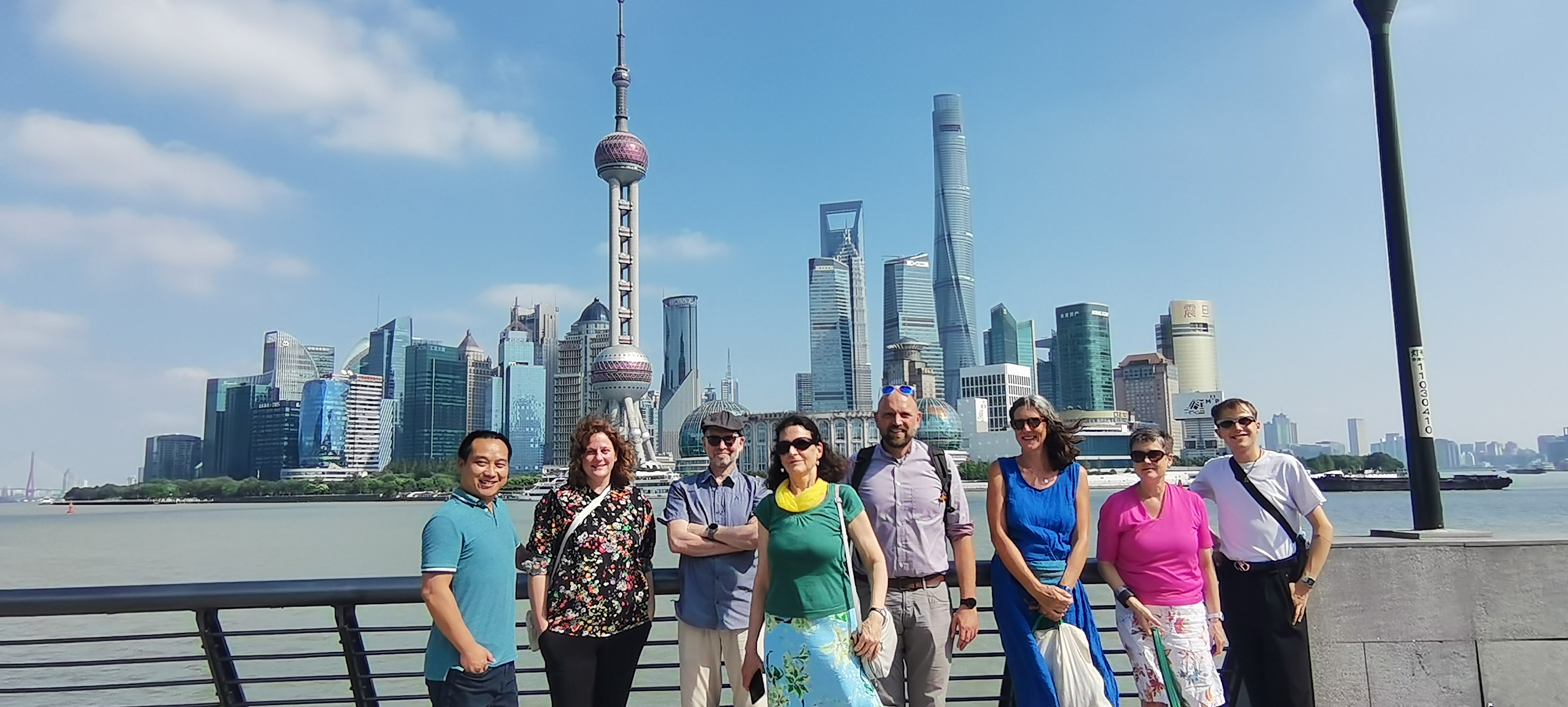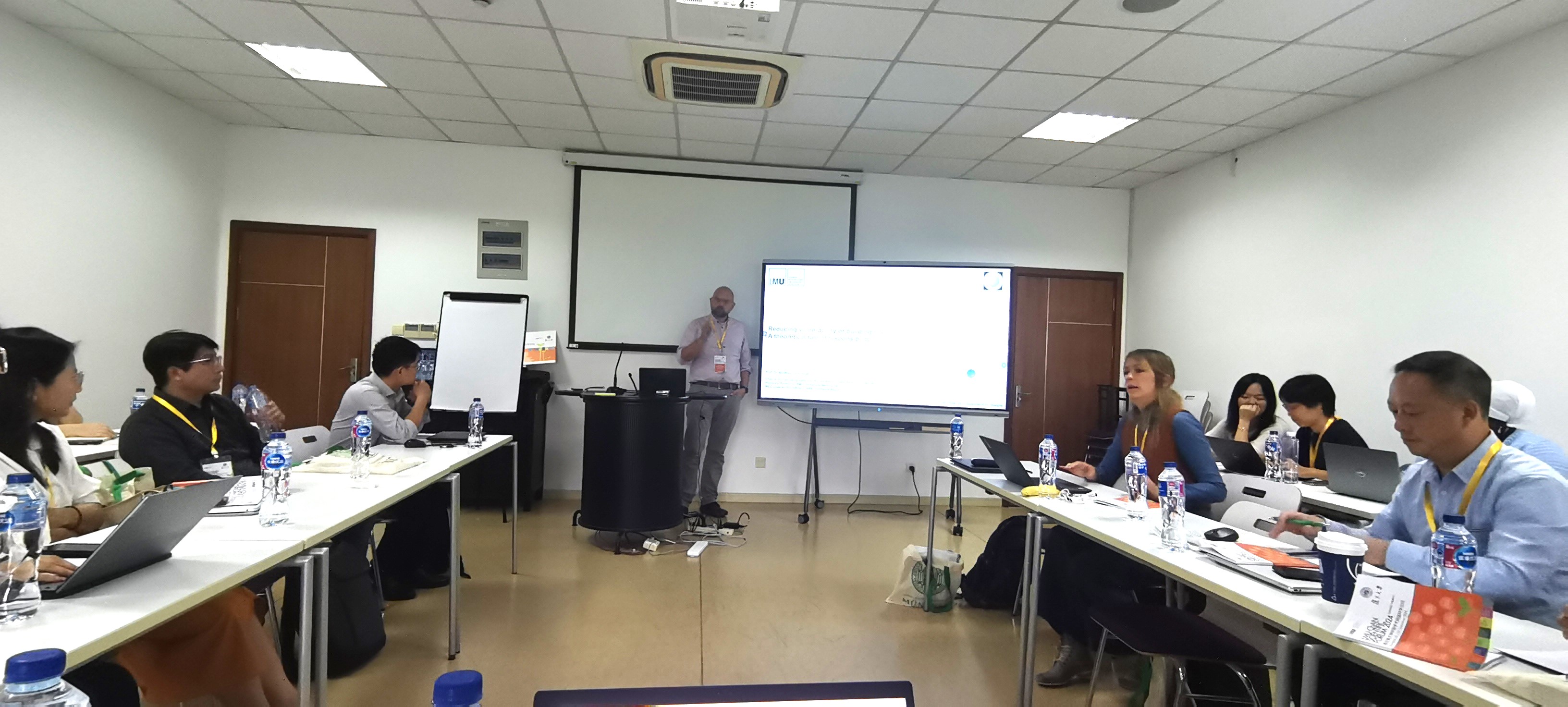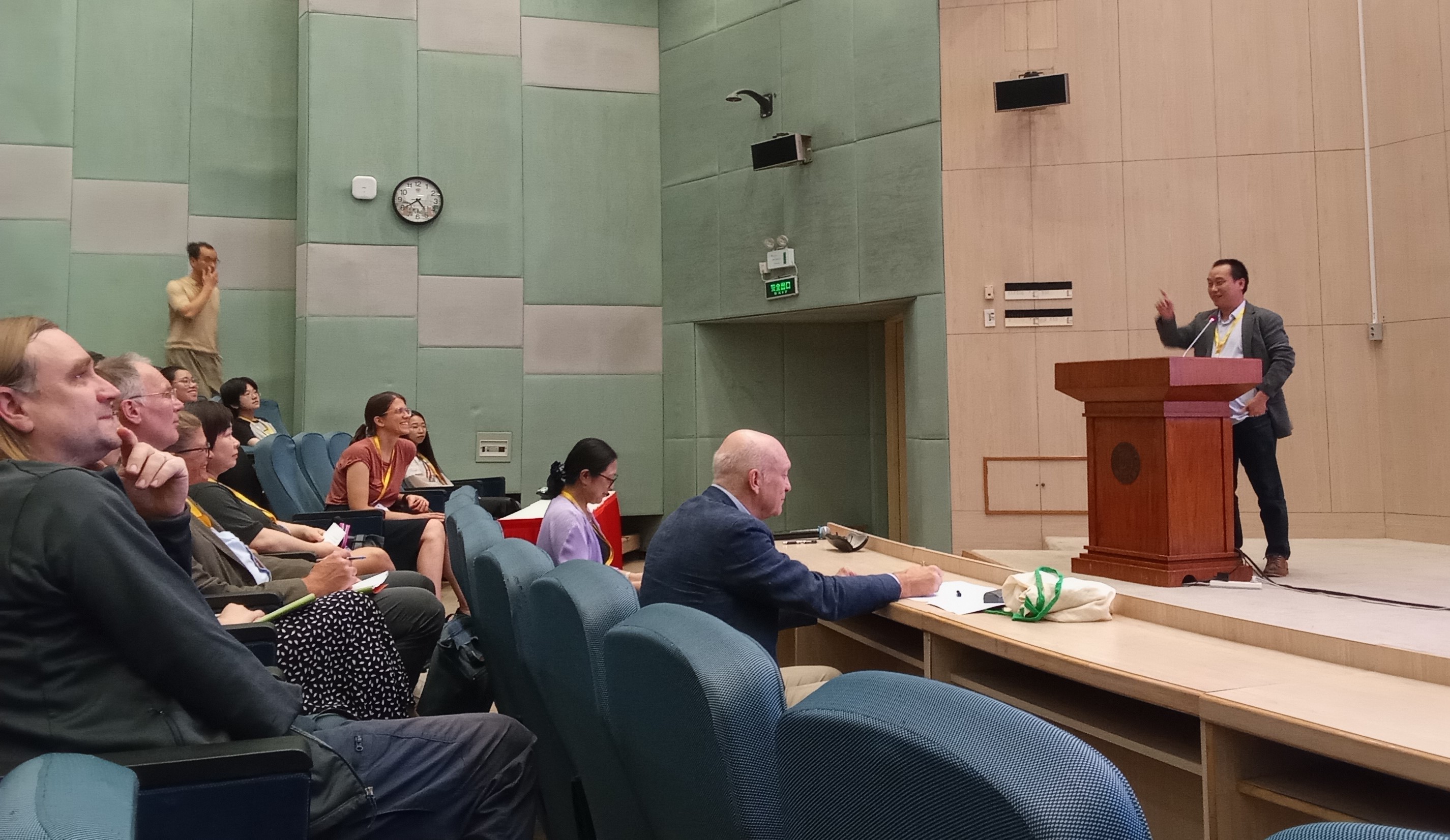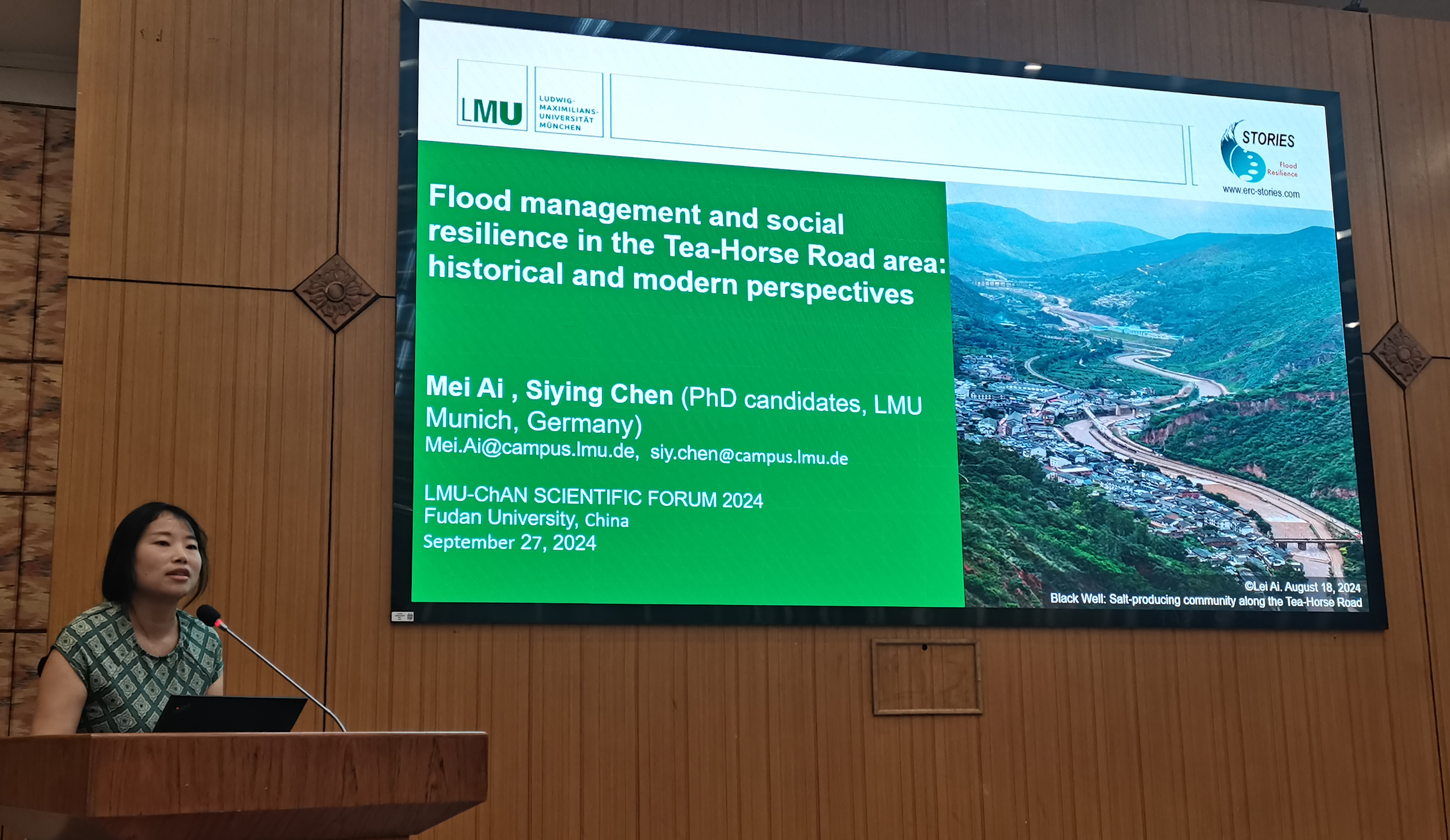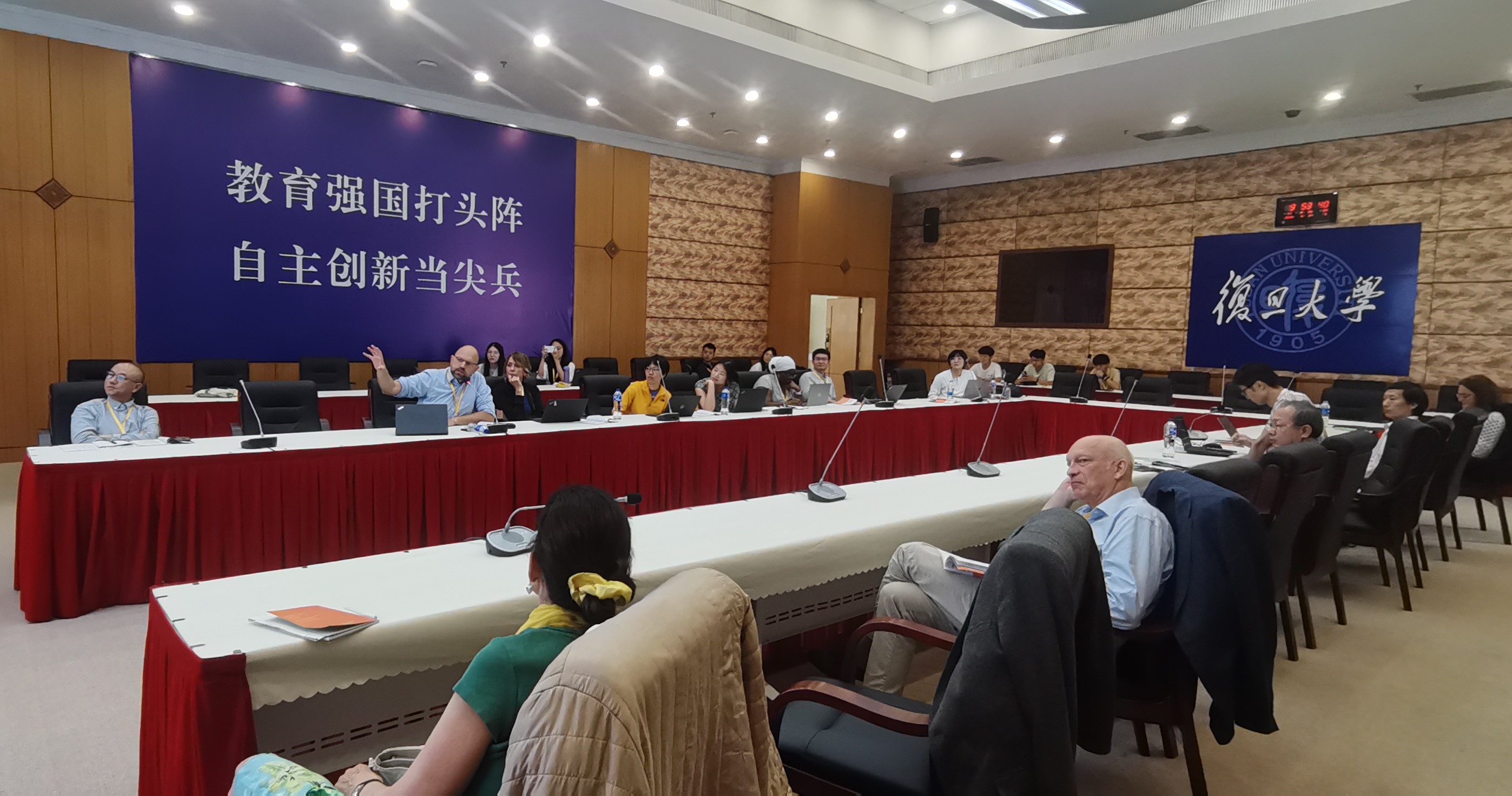LMU Munich Team Visited China and Participated in Workshops in Beijing and Shanghai
In September 2024, a team from LMU Munich’s Department of Geography, led by Prof. Matthias Garschagen, visited China and took part in two workshops held in Beijing and Shanghai from September 24-28. The eight-member team included Prof. Garschagen, Dr. Liang Emlyn Yang, Dr. Olabisi S. Obaitor, Dr. Julia Teebken, and PhD students Wenhan Feng, Mei Ai, Siying Chen, and Jiachang Tu.
As part of the Sino-German exchange project FreCom, the first workshop, titled “Risk Management and Resilience Building for Sustainable Development,” was held at the Institute of Geographic Sciences and Natural Resources Research, Chinese Academy of Sciences, in Beijing. Over 100 experts and students from universities and research institutions across China, Germany, Nigeria, Pakistan, and India participated. The workshop provided a platform for in-depth discussions on current international research trends in flood risk management.
At the workshop, Prof. Matthias Garschagen delivered a keynote speech titled “Advancing Urban Climate Change Adaptation: Speed, Scope, Depth,” addressing the urgency and challenges of climate adaptation in urban areas. His talk highlighted the need for speeding up adaptation measures and scaling efforts more broadly. Dr. Liang Emlyn Yang gave a detailed presentation on “Modeling the Spatial-Temporal Dynamics of Flood Resilience in the Mekong Basin,” exploring how spatial and temporal changes affect flood resilience in this region. Dr. Julia Teebken focused on “Historical Materialist Policy Analysis to Study the State of Climate Adaptation Policymaking in China,” providing a critical analysis of China’s climate adaptation policies. Dr. Olabisi S. Obaitor presented on “Modeling Future Urban Growth Scenarios in the Context of SSPs and Ecosystem-Based Adaptation to Address Flood Risk in Hue, Vietnam,” discussing how urban growth models intersect with flood risks and climate adaptation. PhD student Wenhan Feng shared insights from his research on “Simulating Community Resilience to Flood Impacts in the Upper Mekong Basin Using an Empirical Agent-Based Model,” which demonstrated how simulations can help understand community resilience to flood events.
During the opening ceremony, Prof. Xiangzheng Deng of the Chinese Academy of Sciences delivered a welcome address, followed by a symbolic exchange of gifts with Prof. Garschagen, marking the strengthening of Sino-German academic collaboration. The Chinese team also hosted a welcome banquet and led a field trip around Beijing, facilitating practical exchanges on flood management strategies. A poster session encouraged further discussion on sustainable development and risk management, while the workshop’s conclusion set a positive tone for future exchanges and collaborative projects.

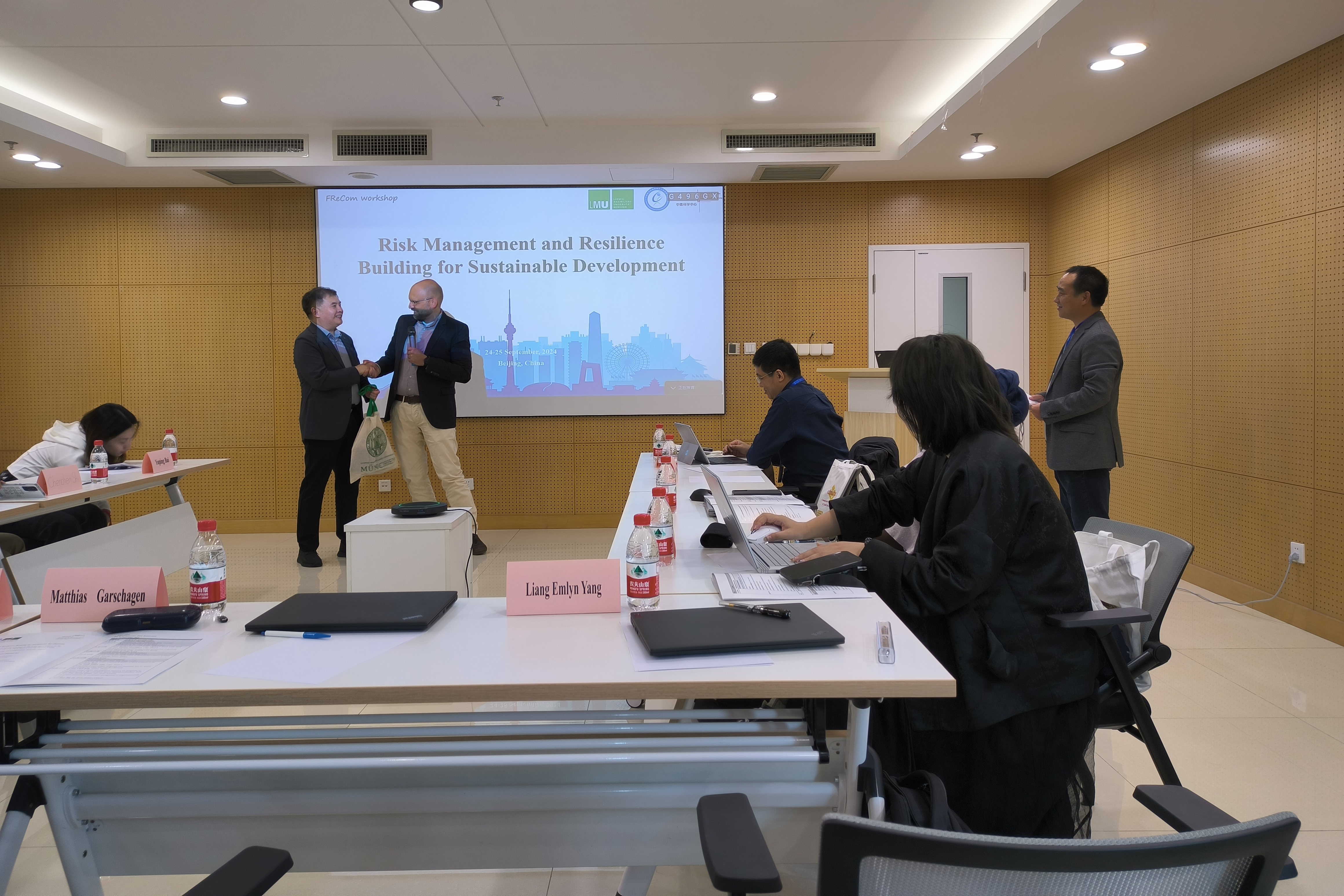
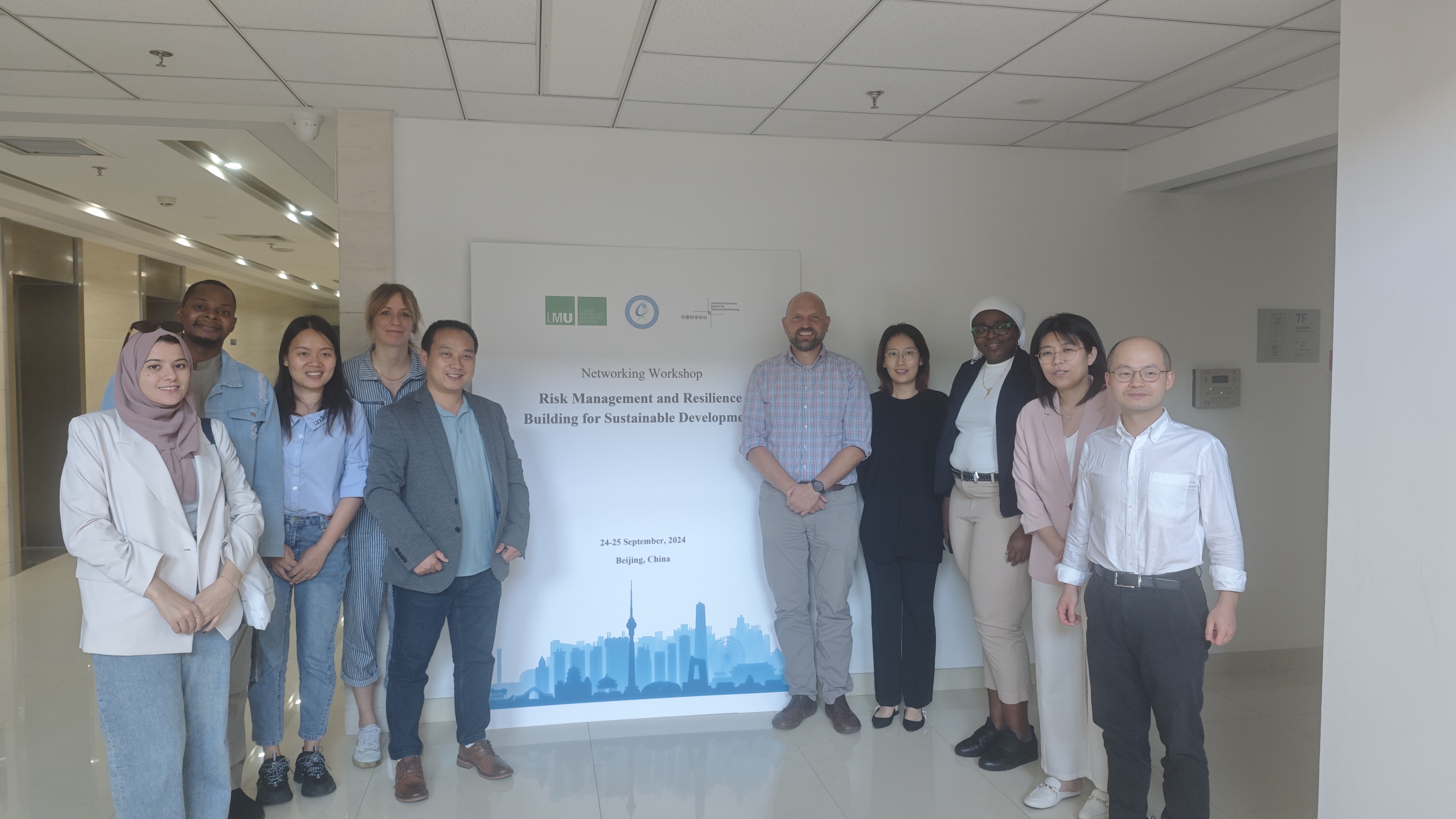
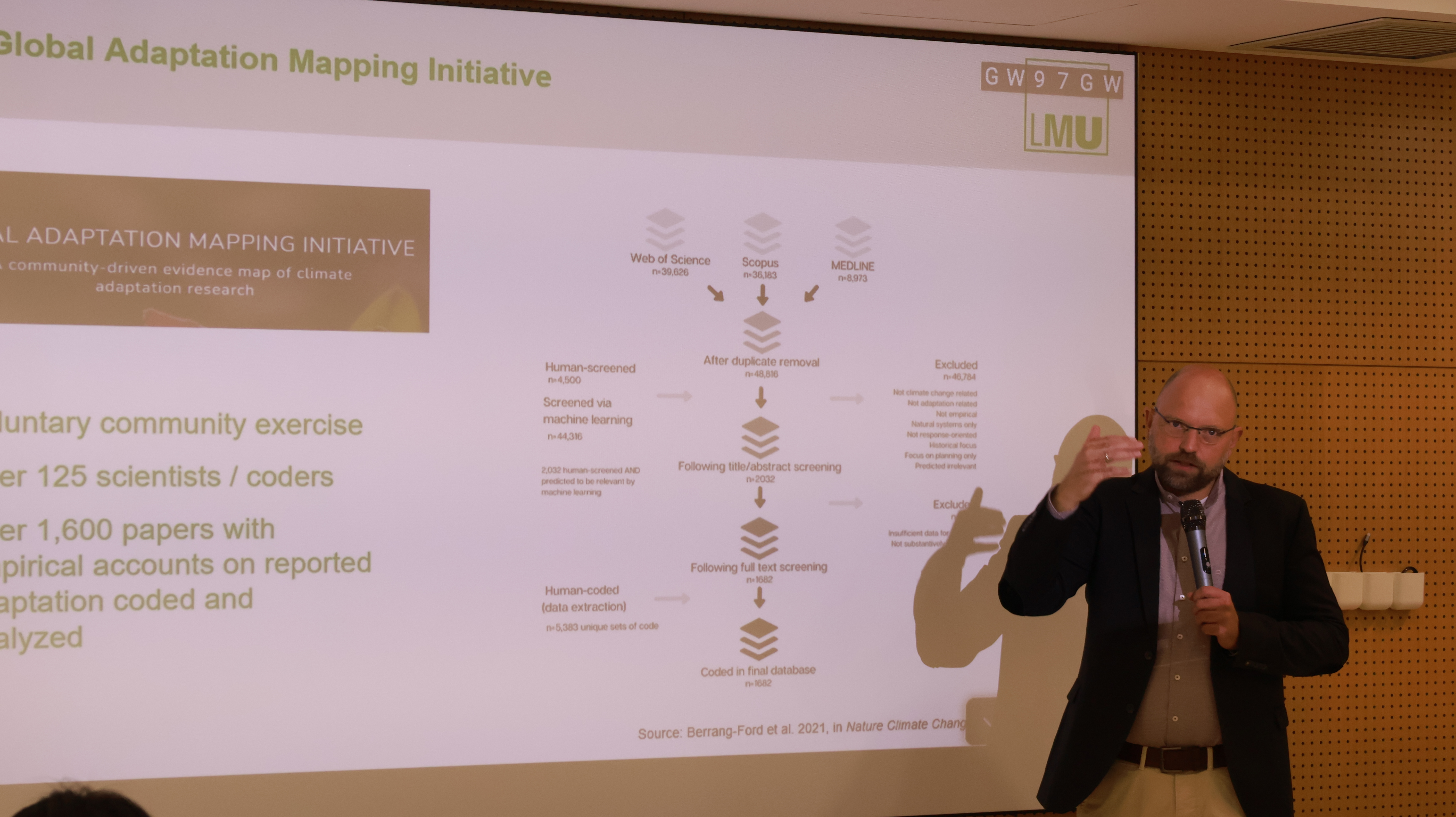
From September 25-28, the second workshop took place in Shanghai as part of the LMUChAN initiative. This annual scientific forum is co-organized by LMU Munich and 12 leading Chinese universities. This year’s event, co-hosted by LMU and Fudan University, included a session titled “Exploring Why Climate Change Isn’t Everything,” chaired by Dr. Julia Teebken, Dr. Liang Emlyn Yang, and Prof. Jiang Ping from Fudan University. The session featured 14 presentations, making it the largest section of the forum. Prof. Matthias Garschagen presented “Reducing Vulnerability or Building Resilience? A Theoretical Tale of Responsibility,” which explored the interplay between vulnerability reduction and resilience building. Dr. Julia Teebken’s talk, “The Opportunities and Limitations for Addressing the Root Causes of Vulnerability Through Climate Adaptation,” examined how climate adaptation efforts can or cannot address deep-rooted vulnerabilities. Dr. Olabisi S. Obaitor presented on “Assessing Flood Exposure Disparities Across Urban Morphologies: Lessons Learned from Metro Manila and Hanoi,” discussing the disparities in flood risks across different urban landscapes. Dr. Liang Emlyn Yang explored “Understanding Long-Term Social Resilience to Climate Change Impacts,” analyzing how societies maintain resilience in the face of long-term climate challenges. The afternoon session, led by Dr. Julia Teebken and Prof. Jiang Ping, facilitated a collaborative discussion on “Identifying Research Priorities and Emerging Issues in Social Scientific Climate Science and Policy Research on China.” This session significantly enhanced collaborative efforts between Chinese and German scholars in the field of climate adaptation science.
On September 27, Dr. Liang Emlyn Yang, Prof. Hans van Ess from LMU’s Sinology Department, and Prof. Yuda Yang from Fudan University chaired another session on “Climate Change and Social Resilience in the Past.” Dr. Yang presented “Evolving Social Resilience to Flood Impacts in the Tea Horse Road Area,” showcasing the historical evolution of flood resilience in this region. PhD students Mei Ai and Siying Chen presented “Case Studies of Flood Resilience in Southwest China with a Historical Perspective,” detailing case studies from the STORIES project and offering valuable historical insights into flood resilience research. These talks were well-received for their depth and contribution to the understanding of historical perspectives on flood resilience.
The social and academic activities between September 25-27 were organized smoothly and led to fruitful exchanges. The Chinese team hosted a welcome banquet. And on September 28, under the organization of Dr. Liang Emlyn Yang and Chinese colleagues, the German team conducted a field trip in Shanghai, further strengthening academic cooperation between the two sides.
During the five-day visit to China, the LMU Munich team experienced rich cultural exchanges and participated in numerous social and academic activities. They presented their research in workshops held in Beijing and Shanghai, engaging in deep discussions with colleagues from China and other parts of the world. This trip was not only enjoyable but also highly productive, leading to valuable insights and new partnerships. Looking forward, the team is excited about future collaboration opportunities, with plans for joint research projects, workshops, and exchange programs to further strengthen their academic ties.
